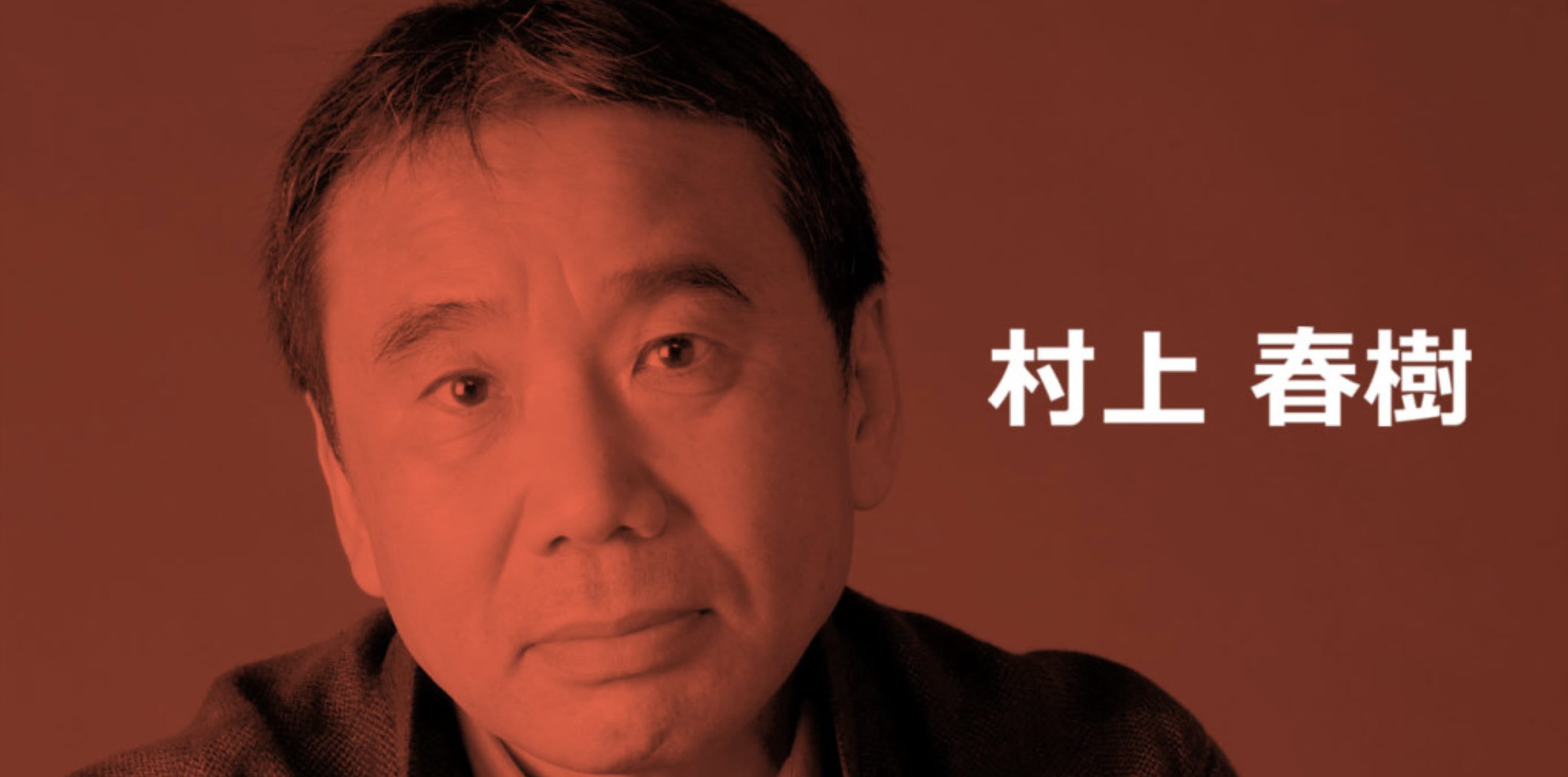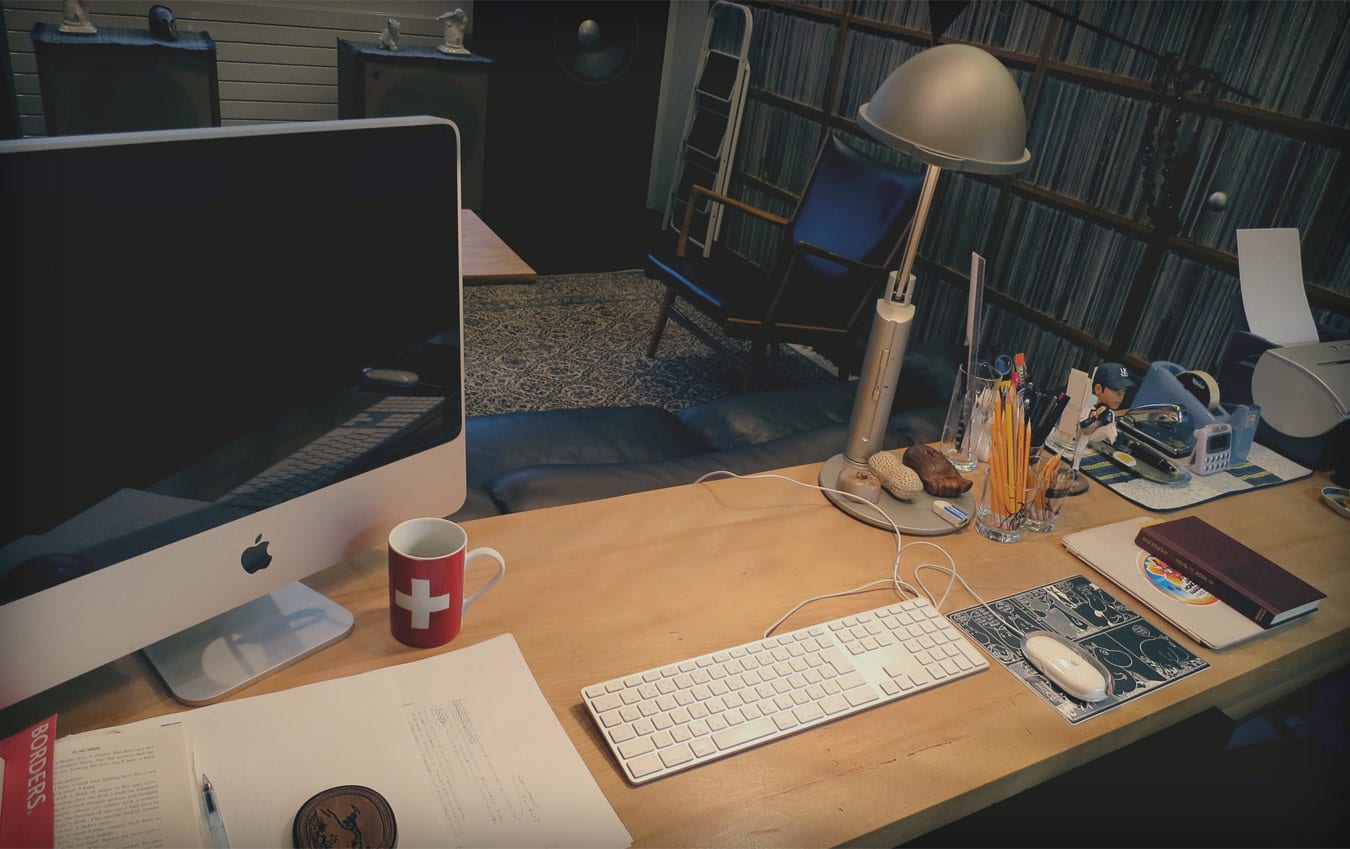
In 1978 Haruki Murakami was in the bleachers of Jingu Stadium watching a baseball game between the Yakult Swallows and the Hiroshima Carp when Dave Hilton, an American, came to bat. According to an oft-repeated story, in the instant that he hit a double, Murakami suddenly realized that he could write a novel. He went home and began writing that night.

Haruki Murakami was born in Kyoto, Japan, in 1949. He grew up in Kobe and then moved to Tokyo, where he attended Waseda University. After college, Murakami opened a small jazz bar, which he and his wife ran for seven years.
His first novel, Hear the Wind Sing, won the Gunzou Literature Prize for budding writers in 1979. He followed this success with two sequels, Pinball, 1973 and A Wild Sheep Chase, which all together form “The Trilogy of the Rat.”
Murakami is also the author of the novels Hard-Boiled Wonderland and the End of the World; Norwegian Wood; Dance Dance Dance; South of the Border, West of the Sun; The Wind-Up Bird Chronicle; Sputnik Sweetheart; Kafka on the Shore; After Dark; 1Q84; Colorless Tsukuru Tazaki and His Years of Pilgrimage; and Killing Commendatore. He has written five short story collections: The Elephant Vanishes; After the Quake; Blind Willow, Sleeping Woman; Men Without Women; and First Person Singular; and an illustrated novella, The Strange Library.
Additionally, Murakami has written several works of nonfiction. After the Hanshin earthquake and the Tokyo subway sarin gas attack in 1995, he interviewed surviving victims, as well as members of the religious cult responsible. From these interviews, he published two nonfiction books in Japan, which were selectively combined to form Underground. He also wrote a series of personal essays on running, entitled What I Talk About When I Talk About Running, a conversation with friend and former Boston Symphony Orchestra conductor Seiji Ozawa entitled Absolutely on Music, a reflection on his personal t-shirt collection entitled Murakami T, and a unique look at the craft of writing entitled Novelist as a Vocation.
The most recent of his many international literary honors is the Jerusalem Prize, whose previous recipients include J. M. Coetzee, Milan Kundera, and V. S. Naipaul. Murakami’s work has been translated into more than fifty languages.
Read More
"Fiction and Fake News" interview via The Associated Press (2023)
"By the Book" via The New York Times (2022)
"Haruki Murakami on Cold Beer, Nothingness, and F. Scott Fitzgerald" profile via Interview (2022)
"I've Had All Sorts Of Strange Experiences In My Life" interview via NPR (2021)
"The Underground Worlds of Haruki Murakami" interview via The New Yorker (2019)
"The Fierce Imagination of Haruki Murakami" profile via The New York Times Magazine (2011)
